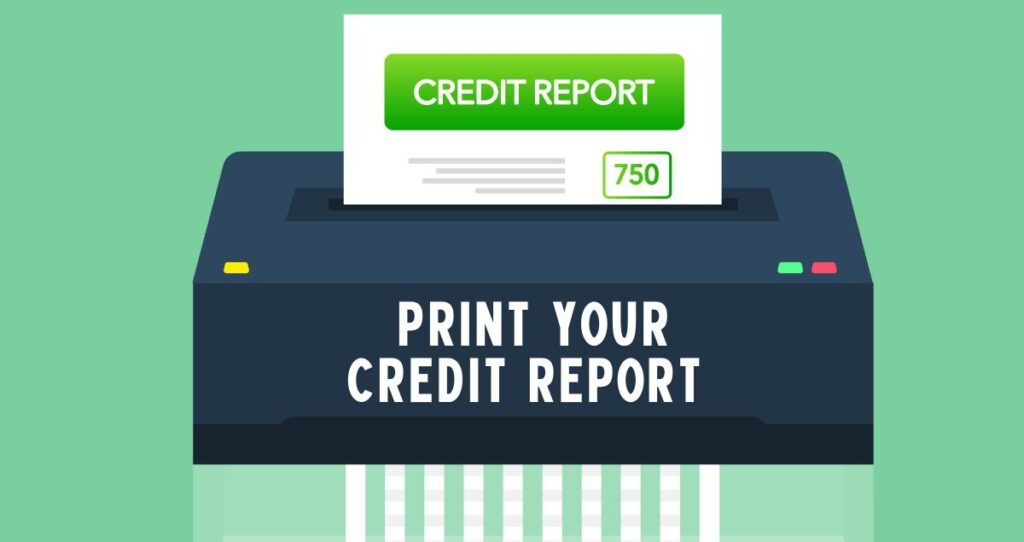Your credit score might decrease when you apply for a credit card. Every time you apply for a credit card, the card issuers view your credit file, resulting in a hard inquiry on your credit reports. One hard inquiry will lower your credit score by 5-10 points. Submitting multiple credit card applications in a short time can drop your credit score by many points due to multiple hard inquiries on your credit reports.
Ideally, you should not have more than one hard inquiry on your credit reports in 12 consecutive months.
Here are how applying for a credit card affects your credit score and tips on getting approved for one.
What happens to your credit score when you apply for a credit card?
When you apply for a credit card, a hard inquiry will be reported on your credit reports, and your score will drop a few points. Each hard inquiry remains on your credit report for 24 months but only affects your score for 12 months. As you utilize your credit card and pay off your balances on time, the points you lost from a hard inquiry will be recovered in a short time.
A new credit card will also affect other factors used to calculate your credit score. For example, your credit limit will go higher, which might reduce your credit utilization. Improved credit utilization can boost your credit score. In addition, the new card can improve your credit mix, which is another factor in your FICO score and VantageScore calculation.
Does my FICO score go lower when I get denied credit?
A hard inquiry will still appear on your credit report whether you get approved for a credit card or denied. The inquiry is not based on your credit card issuer’s decision. Instead, it is solely based on a lender checking your profile to see if you qualify for that credit card.
Your FICO or Vantage Score will decrease due to that hard inquiry in your credit report. For this reason, the best way to minimize the impact of a credit card application on your credit score is to apply for the right credit card that you qualify for—submitting fewer credit card applications results in less damage to your credit score.
Before you apply for any credit card, ensure you have a good credit score and get pre-qualified to minimize the risk of getting denied. You should also shop around to find credit score issuers with lower requirements. Even if you get a hard inquiry, your application will be accepted. This will prevent you from applying for other credit cards and accumulating multiple hard inquiries on your credit reports.
Related: How do you apply for a credit card and get approved?
How long do hard inquiries stay on your credit report?
Besides lowering your credit score, a new credit card account will result in a hard inquiry on your credit report. Each hard inquiry will knock off a few points from your credit score. In addition, a hard inquiry will remain on your credit report for 2 years, although it will only affect your credit score for 12 months. After two years, the hard inquiry will automatically fall off your credit reports.
If an inquiry has been on your credit reports for more than 24 months, dispute it to credit reporting bureaus (Equifax, TransUnion, and Experian). Here is a guide to disputing errors, fraudulent activities, and other negative items to credit bureaus.
How to apply for a credit card and get approved?
Since your credit score might drop when you apply for a credit card, it is critical to ensure you qualify before you apply. Don’t just submit a credit card application because you like the card; submit your application for a credit card you can easily be eligible for.
Getting approved for a credit card from a single application will prevent you from submitting multiple applications. Again, the more credit cards you apply for, the further your credit score will drop due to multiple hard inquiries. Since you cannot prevent a hard inquiry from appearing on your credit report, the best course of action is to minimize the number of hard inquiries on your credit report.
Tips to get approved for a credit card
- Understand why you need a credit card (shopping, gas, groceries, travel, business, credit building, etc.)
- Check your credit score. A good credit score will help you get a credit card with lower rates and favorable terms.
- Consider paying off some of your current debts to improve your DTI ratio.
- Choose a credit card that matches your current financial goals and credit standing.
- Get pre-qualified first and shop around for multiple lenders.
- Compare multiple credit card offers to ensure you get the best deal.
- Pick the right card (the card that you can easily qualify for given your current situation)
- Complete the application (online or in person) and submit it.
- Wait for one to 2 weeks to get your card in the mail.
Related: What should you do when you get denied credit?
How do I get hard inquiries removed from my credit report?
If you have overdue hard inquiries or a reported inquiry by mistake, you can have them removed. A simple and effective way to remove a hard inquiry from your credit report is to submit a formal dispute letter to either credit reporting bureaus, the company that pulled your report, or both.
For example, suppose you applied for a credit card more than two years ago, and the inquiry still appears on your credit report. In this case, you can dispute this inquiry to the credit reporting agencies that reported it and/or your credit card company. Your dispute letter should include all evidence, details, and information regarding the dispute and inquiry.
How do hard inquiries affect your credit score?
Typically, each hard inquiry lowers your credit score by 5-6 points on average. Whether you apply for a car loan, a mortgage, or a credit card, the effect of a hard inquiry on your credit score will be the same. Having good credit, however, minimizes the impact of hard inquiries on your credit score.
According to CapitalOne, the effect of a hard inquiry on your credit score is minimal, especially when you have good credit. Hard inquiries account for only 10% of your FICO score. Since different companies use different scoring models, you might see a slight difference in your credit scores from other credit scoring agencies. It is possible that your credit score can drop as much as 10 points from a single hard inquiry.
Does your credit score go up when a hard inquiry drops off?
A big misconception about hard inquiries is that people think their credit scores go higher when a hard inquiry is removed. Your credit score will decrease when a hard inquiry is reported on your credit reports. However, removing a hard inquiry will not increase your credit score. This is because a hard inquiry does not affect your credit score after 12 months from the date it was recorded on your credit reports. As a result, your score does not change when the inquiry is removed 24 months later.
By the time your inquiry falls off, your credit score will have recovered, assuming you make your payments on time and use your credit card responsibly.
Mistakes to avoid when applying for a credit card
Since applying for a credit card will lower your credit score, and the card can be a financial burden, it is crucial to avoid common mistakes people make when applying for their credit cards. The following are the top mistakes to avoid when applying for a credit card.
- Not shopping around for a lower interest rate and favorable terms
- Choosing the wrong credit card.
- Applying without being pre-qualified first.
- Picking a credit card with an annual fee.
- Applying for a credit card without enough rewards and benefits.
- Overlooking fees and some transaction APR, such as balance transfer and cash advance fees.
- Applying for a credit card that you do not qualify for.
- Applying for too many credit cards in a short time.
- Not understanding how to use credit cards properly.
- Applying for a credit card without understanding your credit limit and how your credit card spending affects the health of your credit.
What is a credit report used for?
The information in your credit report is used by lenders to approve you for loans and other forms of credit accounts. Other companies, such as insurance companies, use the information in your credit reports to determine the insurance rate you will pay and whether to approve your application or deny it.
Your credit reports also serve as a resource in your credit score calculations. Credit reporting agencies use information from your credit reports to calculate your credit score.
Since the health of your credit and ability to qualify for loans is directly affected by information in your credit reports, keeping your credit reports in good standing is essential. A good practice is to get a copy of your credit report and ensure all information is accurate and current. You can get a free copy of your annual credit report from each credit bureau once every 12 months. You can submit a formal dispute to credit bureaus and lenders if there is an error, inaccurate information, or removable negative items on your credit report.









